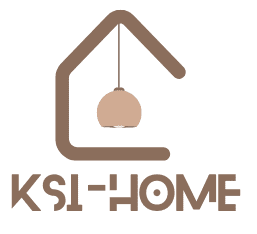The home care industry has become a critical part of healthcare, evolving rapidly to meet growing demand. From technological advancements to regulatory changes, understanding home care industry trends is essential for providers, caregivers, and families alike. These trends are not just shaping services—they’re transforming lives. Here’s everything you need to know about where the home care industry is heading and how it’s impacting healthcare today.
Key Home Care Industry Trends at a Glance
Below is a quick overview of important trends shaping the home care industry in 2025 and beyond.
| Trend | Description | Impact |
|———————————–|———————————————————————————|——————————————-|
| Aging Population | Increased global elderly population drives demand. | Boom in home care services to assist aging seniors. |
| Technology Integration | Use of AI, remote monitoring, and telehealth advances in care delivery. | Improves efficiency, lowers costs. |
| Focus on Personalized Care | Customized care plans based on individual needs and preferences. | Enhances patient satisfaction. |
| Home Care Workforce Shortage | Challenges in staffing experienced caregivers. | Accelerates automation solutions. |
| Value-Based Healthcare | Shift toward outcomes-focused, cost-effective care. | Reduces costs while improving results. |
| Regulatory and Policy Updates | New guidelines govern industry standards. | Creates evolving compliance needs for agencies. |
Why Home Care is Growing Like Never Before
Over the next decade, the home care industry is projected to outpace other sectors of healthcare. Why this surge? Here are key drivers of growth:
1. Global Aging Demographics
Countries worldwide are aging rapidly. By 2030, one in six people globally will be aged 60 or older. Aging populations need long-term and consistent support, which makes home care a preferred choice over institutional care.
- Real-life example: Sara, an 82-year-old from Dallas, opted for home care after hip replacement surgery. Thanks to personalized attention from caregivers, she recovered faster without hospital readmission.
2. Rising Demand for Aging-in-Place Solutions
Surveys reveal that nearly 90% of seniors wish to age in place, preferring the comfort of their own homes to assisted living facilities. Services such as daily care, companionship, and meal preparation allow families to fulfill their loved ones’ wishes without compromising care quality.
User Feedback
“I was skeptical about using home care services for my dad, but the compassion and professionalism of his caregiver absolutely amazed us!”
– Donna M., 5-star review for BayCare Home Health Agency
3. Technology Transforming Home Care
Innovations like telehealth, remote patient monitoring, AI-driven data tracking, and even wearable devices are making a big splash in healthcare.
- Technological example: A startup incorporated AI-assistants that remind elderly patients to take medication, monitor health stats, and alert caregivers in emergencies, leading to fewer missed doses and faster emergency response times.
4. Workforce Shortages and Automation
The shortage of skilled caregivers continues to challenge home care providers. Solutions include robotic caregiver assistants for physical tasks such as lifting, walking assistance, and even companionship.
5. Policy Trends Elevating Standards
Governments are stepping in with strict guidelines to protect patients and ensure fair practices, making it essential for organizations to stay compliant while meeting the growing demand.
The Rise of Personalized Home Care
Personalized care means looking beyond a cookie-cutter approach. From caregivers trained in dementia support to multilingual providers assisting immigrant families, personalization ensures each patient receives tailored attention.
Benefits of Personalized Care include:
- Enhanced trust between patients and caregivers.
- Output-based care with measurable improvements in health.
- Greater mental and emotional well-being for recipients.
Example: A California-based agency offers culturally specific home care services for Asian seniors by matching caregivers fluent in native languages and incorporating community-focused traditions into care routines.
Challenges Facing the Home Care Industry
While the outlook is bright, the industry faces key challenges like labor shortages, wage demands, and burnout among caregivers. Without addressing these concerns, sustaining top-tier service levels could be tough.
Addressing the Challenges with Incentives
To combat these issues, home care agencies are offering sign-on bonuses, flexible shifts, and career pathways to attract and retain talent.
FAQs About Home Care Industry Trends
Q1. What technological advancements are revolutionizing home care?
Remote monitoring devices, telehealth apps, and wearable gadgets are among the popular tech solutions. These empower caregivers to monitor patient health 24/7 with automated alerts for anomalies.
Q2. Why choose home care over institutional care?
Home care gives seniors a sense of independence and allows families to stay involved. It’s often more cost-effective and personalized compared to institutional care.
Q3. How can home care providers retain staff amidst labor shortages?
Innovative training programs, competitive wages, and better workplace perks like wellness benefits can reduce staff turnover.
Q4. Are customer reviews important when selecting a home care agency?
Absolutely! Go for providers with excellent user reviews and ratings—these reflect real experiences and often highlight a company’s reliability and care standards.
Q5. What regulatory changes affect the home care industry in 2025?
Updated compliance frameworks across the US incentivize use of licensed and accredited agencies for top-quality service provision.
Closing Thoughts
The home care industry trends shaping the landscape today are redefining what healthcare means outside a hospital setting. Whether you’re a professional in the industry or a family exploring care options, staying informed about these key trends allows you to be future-ready.
With technology enhancing care delivery, personalized services altering patient experiences, and demand continuing to rise, the home care industry is more vital and dynamic than ever.
Admin Recommendation
Laying the Foundation for DIY Home Improvement Success


















